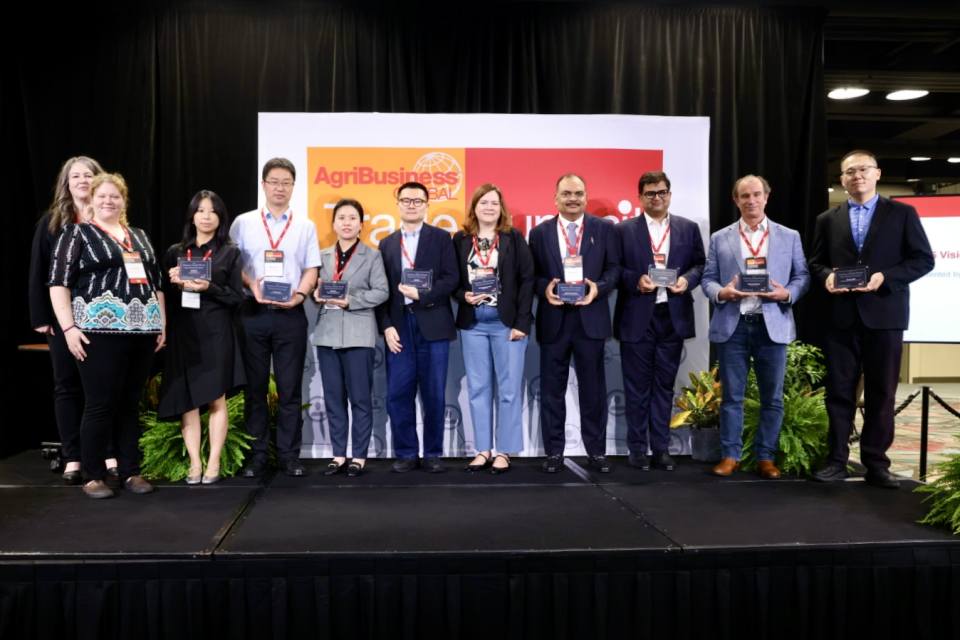Proteção de Cultivos Cresce Duas Vezes Mais Rápido no Sudeste Asiático
O foco crescente em tecnologia de sementes por empresas multinacionais deixa uma porta aberta para produtores e distribuidores pós-patentes, de acordo com uma pesquisa recente do Rabobank.
“O crescimento atual no Sudeste Asiático é muito maior para as empresas de genéricos do que para as seis grandes”, disse Vaishali Chopra, do Rabobank, aos participantes da Cúpula Comercial da FCI em Kuala Lumpur, na segunda-feira. Essa mudança estrutural para pesquisa e desenvolvimento em biotecnologia pode levar as moléculas patenteadas a perderem participação de mercado para as moléculas genéricas, disse ela durante a sessão de abertura do evento.
O mercado de defensivos agrícolas do Sudeste Asiático está crescendo duas vezes mais rápido que a média mundial, com um crescimento de cerca de 5% a 6% em valor a cada ano. Empresas pós-patente podem capitalizar esses fatores de crescimento aumentando sua concentração em formulações premium, pesquisa e desenvolvimento de produtos combinados e oportunidades de co-marketing com multinacionais.
Além disso, a demanda por alimentos de maior qualidade nas economias emergentes dá às empresas de proteção de cultivos uma oportunidade de reestruturar seus portfólios, passando de herbicidas não seletivos de baixa margem para fungicidas de maior margem para culturas e vegetais especiais.
“As empresas de genéricos estão em uma encruzilhada, competindo contra a força das 6 Grandes e os players de baixo custo que fornecem produtos inferiores”, disse Chopra. “Será fundamental focar em estratégias de P&D para formulações premium.”
O Guia de Registro
A Cúpula Comercial da FCI começou com um discurso de abertura da Diretora Adjunta de Agricultura Halimi Mahmud, que chefia o Conselho de Pesticidas da Malásia, responsável pelo registro, monitoramento, fiscalização e publicidade de produtos de proteção de cultivos.
Sua apresentação detalhada sobre como registrar pesticidas na Malásia abordou todos os custos necessários, dados de BPL, estudos de avaliação, limites de resíduos, rotulagem e requisitos de submissão necessários para vender produtos na Malásia.
“Devemos basear nossos processos e procedimentos em padrões internacionais para requisitos de dados”, disse ele a um público lotado no JW Marriott Hotel em Kuala Lumpur. A adesão aos padrões internacionais é fundamental para proteger a saúde dos trabalhadores agrícolas e o meio ambiente, e para manter as relações comerciais com países ao redor do mundo, afirmou.
A Cúpula Comercial da FCI em Kuala Lumpur recebeu mais de 200 delegados de 15 países em seu evento inaugural no Sudeste Asiático. A Farm Chemicals International também sediou eventos este ano em Nairóbi, no Quênia, e em Buenos Aires, na Argentina.
“Esta foi realmente a primeira oportunidade de evento para acessar todo o mercado do Sudeste Asiático”, afirma Vikram Dutiya, representante de contas regionais da Jebsen and Jessen Agrochemicals. “Conseguimos acessar empresas que não tínhamos antes em um local muito concentrado e produtivo, o que rendeu reuniões muito proveitosas.”
O FCI Trade Summit se concentra em mercados emergentes onde o crescimento populacional e a ascensão das classes médias estão criando uma demanda maior por frutas, vegetais e dietas à base de proteína de melhor qualidade, criando assim uma demanda maior por insumos agrícolas.
Produtos químicos agrícolas internacionais sediará suas Cúpulas Comerciais de 2012 em Accra, Gana, em maio; e em Miami, EUA, em agosto.
Nota do editor: As apresentações completas estarão disponíveis em nosso site para os participantes do Trade Summit que usarem seu nome de usuário e senha de registro exclusivos.






